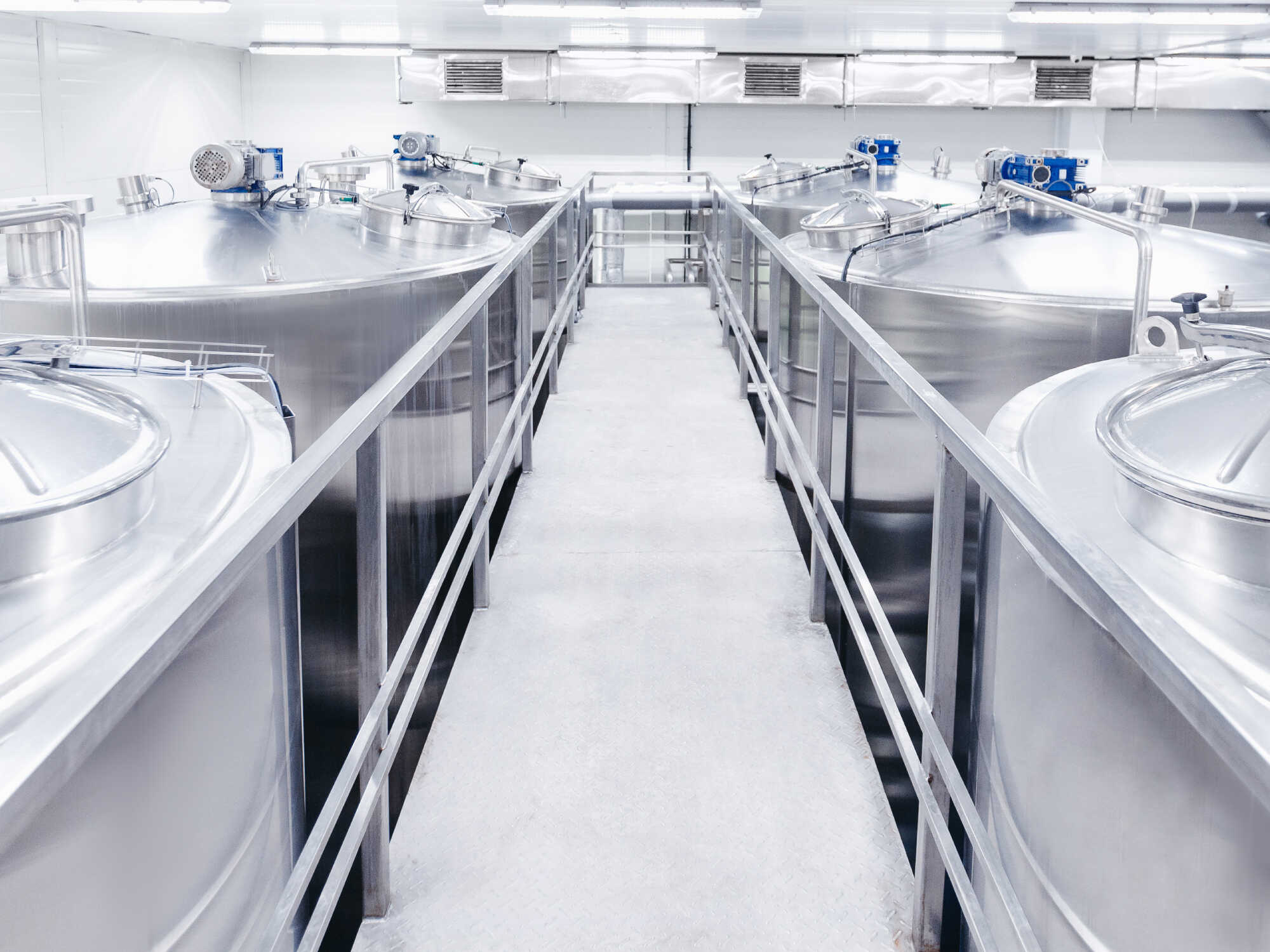
CDMOs for Food and Agriculture Biotechnology Development
Contract Development and Manufacturing Organizations (CDMOs) provide pilot-scale infrastructure and professional services to help startups and scientists create new bio-based products and develop commercial production techniques. Public CDMOs specializing in biotechnology for food production can create jobs, boost technological readiness, and provide outsized support to American farmers, innovators, and consumers.
Read the policy brief
The United States leads in biotechnology and biomanufacturing
The food biotechnology industry promises economic, national security, and public health benefits to the United States. These benefits can be gained faster and more competitively through smart investments by policymakers and business leaders, accelerating economic growth. Efficient, targeted support that will prompt self-sustaining momentum is critical to the United States’ continued leadership.
Contract development and manufacturing organizations (CDMOs) lease small-to-medium-scale production capacity to startups. These organizations reduce the need for small businesses to build individual, costly pilot- and demonstration-scale production facilities, improving the cost efficiency of biotechnology research and encouraging more innovation and entrepreneurship.
CDMOs can also lease this equipment to public and private researchers, including those at universities and public research organizations, helping them reach findings more quickly and at a lower cost. Public CDMOs can collaborate with regional employers, educators, and policymakers on training programs and apprenticeships, building the local workforce and developing the surrounding region into an entrepreneurial hub.
Several countries, including the United States, have funded the construction and founding of public CDMOs for biotechnology. These examples show that CDMOs can quickly earn back the initial investment and become financially self-sustaining, as well as yield strategic and economic benefits. Policymakers should establish CDMOs to enhance domestic technological capabilities and boost economic growth.
Case study: Illinois’ iFAB Tech Hub
The United States Department of Commerce funded the country’s first public CDMO in 2024 with a $51 million grant to kick-start the Illinois Fermentation and Agriculture Biomanufacturing (iFAB) Tech Hub at the University of Illinois Urbana-Champaign. iFAB will create enough pilot manufacturing capacity to test 60 new technologies per year. Project members also coordinated with the private sector to upgrade commercial-scale facilities and crop refinement capacity in the immediate vicinity.
Biomanufacturing’s economic impact on Central Illinois as a result of iFAB’s founding is likely to be between $10 and 20 billion. The Tech Hub will track job growth, workforce training, company formation, and entrepreneurial activity associated with its operation as it develops.
To read more about iFAB, see “case studies” in the policy brief.
Recommendations for policymakers
Federal and state policymakers should establish CDMOs specializing in food production through biotechnology, combining several priority technologies and resources to maximize regional benefits:
Priority technologies:
- Precision fermentation.
- Gas fermentation.
- Biomass fermentation.
- Cultivated meat & ingredients.
- Plant-based protein innovation.
- 3D-printing and texturization.
Priority resources:
- Agricultural sidestreams, e.g., soy meal, corn distiller’s dried grains with solubles, brewer’s spent grain, and corn stover.
- Commodities and cover crops, e.g., corn, soy, canola, yellow peas, and other pulses.
- Gaseous sidestreams and feedstocks, e.g., carbon dioxide, methane, and ammonia.
Capacity & specifications:
- Prioritize pilot, demonstration, and smaller commercial-scale bioreactors and processing equipment, given the number of companies operating at those stages and the general availability of bench-scale capacity.
- Include flexible upstream and downstream processing equipment to allow for full in-house production and testing.
- Provide resources to hire full-time specialists and equipment operators, and fund apprenticeship and fellowship programs to cultivate new talent.
- Ensure that facilities are food-grade and eligible to receive a USDA grant of inspection if needed, allowing commercial operations to run simultaneously with feasibility testing.
Investment: The CDMOs analyzed under “Case Studies” required $25 to 50 million in up-front public investment with the possibility of recouping this outlay and becoming self-sustaining. One CDMO reported breaking even after just one year of operation and earning back the full investment in several years, all while catalyzing significantly more private investment. To take advantage of regional specialties and needs, policymakers should allocate funding for multiple CDMOs, each focusing on a particular priority technology and supporting the local economy through specific crop feedstock utilization and employment opportunities.
Recommendation: GFI recommends that policymakers identify multiple locations for siting CDMOs where key agricultural inputs are grown, matching needs for commercialization space in particular technologies with available resources and workforce development profiles. The United States can support many different CDMOs, each serving a geographically and economically unique region and specializing in a strategic technology, which can be funded by governments or economic development offices at the federal, state, or municipal levels, or a combination. Policymakers should survey existing manufacturing and workforce development programs for opportunities to implement these recommendations.
Related resources

Recommendations for President Trump: Building an innovative agricultural bioeconomy
The United States must restore its leadership in biotechnology and biomanufacturing. Investment in food biomanufacturing R&D will bolster agricultural innovation.

How alternative proteins expand opportunities for farmers and agriculture
Explore our fact sheet to learn how alternative proteins support farmers, expand opportunities for agricultural livelihoods, and help create a healthy, resilient agriculture sector.

Alternative protein innovation bolsters national security
Alternative protein technologies produce meat with high efficiency, providing fortification for our food system and defense against growing threats.

Alternative proteins ensure American competitiveness
Plant based foods have gained momentum and notable market share. Read our report explaining why the U.S. should build up a domestic alternative protein industry.
